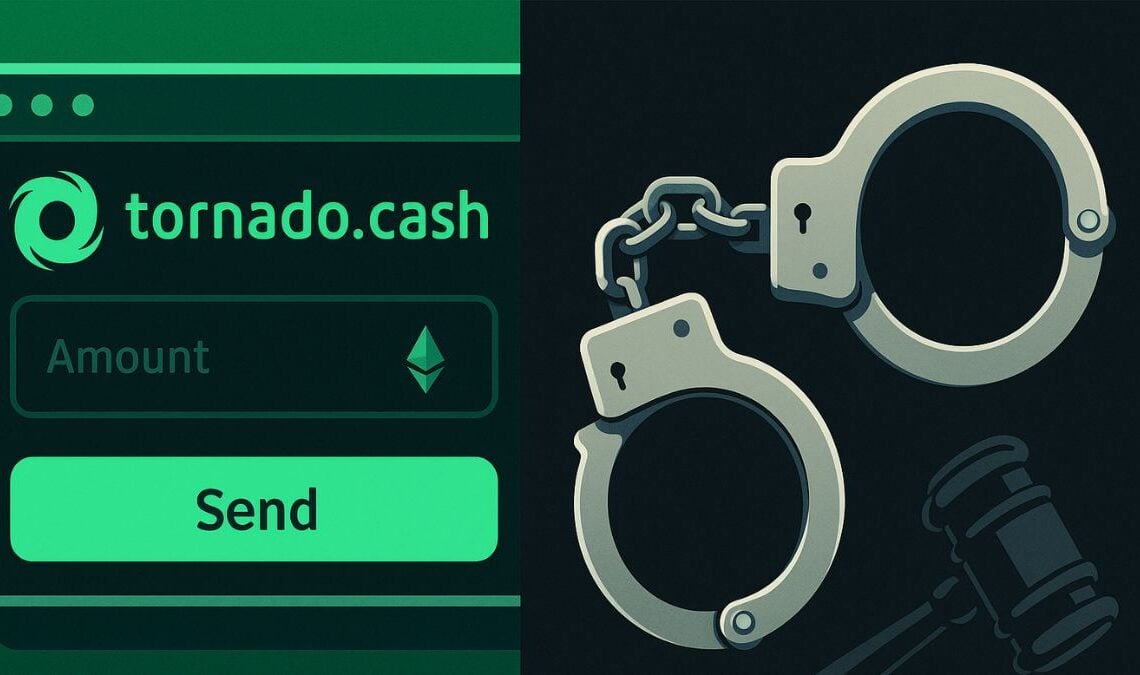In a major development for the crypto world, the ongoing legal battle involving Tornado Cash has taken a decisive turn.
A U.S. federal jury has found Tornado Cash co-founder Roman Storm guilty on one of three charges in a case that has sparked widespread debate around privacy protocols and the future of decentralized technology. The jury, however, could not reach a consensus on the other two charges, resulting in a partial verdict that leaves the case open to further interpretation and possible appeals.
Tornado Cash Trial: What Happened in Court
The trial, which began earlier this summer, has drawn significant attention from both crypto enthusiasts and legal observers. According to Inner City Press, the jury returned a guilty verdict on one count related to conspiracy to commit money laundering, while remaining deadlocked on two other charges involving sanctions violations and operating an unlicensed money transmission business.
OK- now in US v. Roman Storm, verdict watch Day 4 – now post-pedicure of juror, Qs of wallet(s) https://t.co/bpkSEywBpg Unsealing bid https://t.co/HpZrt1UroJ Inner City Press 1st book on the case https://t.co/I5v9z8JIhg [2d soon] & will live tweet, thread below pic.twitter.com/iuDY8reVxR
— Inner City Press (@innercitypress) August 6, 2025
The case centers on Tornado Cash, a decentralized privacy protocol that enables users to obfuscate their crypto transactions by mixing them with others. U.S. prosecutors allege that the tool was used to launder billions of dollars, including funds stolen by North Korea–linked hackers such as Lazarus Group. The platform was sanctioned by the U.S. Treasury in August 2022.
Legal Grey Zones: Is Tornado Cash a Crime or a Tool?
The partial verdict underscores the growing tension between regulators and developers of open-source software. Tornado Cash, by design, runs autonomously on the Ethereum blockchain and does not have a central party controlling it. This key feature has led many in the crypto community to argue that Storm and other developers cannot be held liable for how others use the protocol.
This view was widely echoed in the crypto space, with many developers fearing that the outcome of this case could set a dangerous precedent for software innovation. As noted by Coin Center in earlier filings, prosecuting developers for writing code could chill open-source development and undermine core principles of the internet.
Jury Deadlock Raises New Questions
While the jury’s guilty verdict on one charge is a blow to the defense, the failure to convict on the remaining two charges opens a window for further debate. Legal experts suggest that a hung jury on those counts might encourage the defense to seek an appeal, especially given the lack of clarity around how sanctions laws apply to autonomous smart contracts.
The case also reveals deep uncertainty within the U.S. legal system when it comes to blockchain technology. “We’re in uncharted territory,” said one legal analyst following the trial. “This case is less about one individual and more about how the U.S. is going to treat decentralized systems moving forward.”
Crypto Community Responds
The verdict has reignited the crypto privacy conversation. Privacy advocates argue that tools like Tornado Cash are essential for financial freedom and user sovereignty. Opponents, however, maintain that these tools have been abused by criminals to launder stolen assets at scale.
Despite the legal pressure, interest in on-chain privacy solutions has remained high. Developers in the Ethereum ecosystem continue to explore privacy-preserving technologies that comply with legal standards while protecting user data.
Final Thoughts: What This Means for Tornado Cash and Crypto Privacy
The Tornado Cash verdict could have lasting consequences for blockchain developers, regulators, and users alike. With one guilty charge confirmed and two others unresolved, the legal fight is far from over. It’s likely the outcome will inspire further scrutiny of privacy tools and may shape how the U.S. defines liability in decentralized systems.
For now, one thing is clear: the crypto world is watching closely. Whether this case ends up stifling innovation or drawing a new line in the sand between freedom and regulation remains to be seen.










